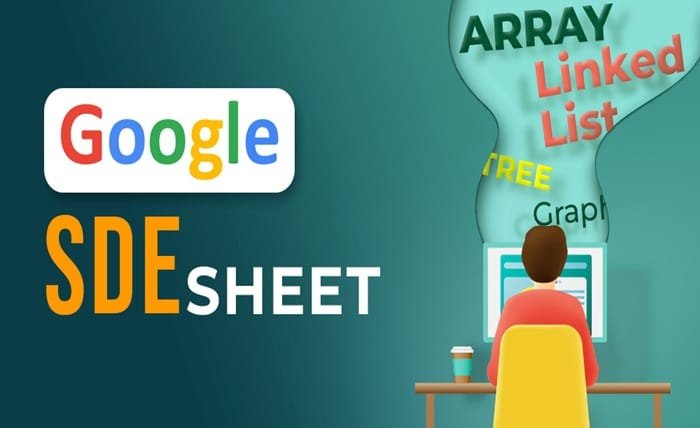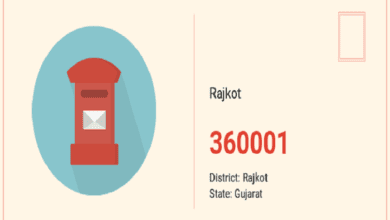Striver SDE Sheet: Software Engineering Aspirants

Striver SDE Sheet
In the competitive world of software engineering, coding interviews play a pivotal role in determining your career trajectory. One of the best ways to prepare for these interviews is by mastering data structures and algorithms (DSA). The Striver SDE Sheet is a popular and trusted resource among coding enthusiasts and aspirants preparing for software development roles.
The Striver SDE Sheet, created by Raj Vikramaditya (Striver), is a carefully curated list of problems designed to cover a wide range of topics that are frequently asked in technical interviews. It provides a structured pathway for learners to practice coding problems, master various concepts, and enhance their problem-solving skills.
In this comprehensive guide, we’ll explore everything you need to know about the Striver SDE Sheet, its importance, how to use it effectively, and how it can help you land your dream job.
What is the Striver SDE Sheet?
The Striver SDE Sheet is a collection of over 180 carefully selected problems focused on data structures and algorithms. These problems are curated from platforms like LeetCode, GeeksforGeeks, and Codeforces, among others, and are meant to provide comprehensive coverage of the topics typically tested in software engineering interviews.
The SDE Sheet covers a wide variety of concepts including arrays, linked lists, dynamic programming, graph algorithms, and more. It is divided into multiple sections, making it easy for learners to focus on specific topics and track their progress over time.
This sheet is specifically designed to help software development engineer (SDE) aspirants build a solid foundation in DSA, making it a must-have tool for anyone preparing for technical interviews.
Why You Should Use the Striver SDE Sheet
The Striver SDE Sheet is an invaluable resource for several reasons:
Comprehensive Coverage of Interview Topics
The Striver SDE Sheet includes a wide range of topics that are commonly asked in coding interviews, from basic data structures to advanced algorithms. Whether you are a beginner or an experienced developer, this sheet ensures you are well-prepared for any challenge that might come your way.
Structured Learning Path
One of the most challenging aspects of interview preparation is knowing where to start and how to progress. The Striver SDE Sheet provides a clear and structured learning path, allowing you to move through topics sequentially and ensure that you cover all necessary areas.
Efficiency in Preparation
The sheet is designed to maximize your preparation in the shortest possible time. By solving the problems on the Striver SDE Sheet, you will build a strong grasp of key concepts, without the need to sift through hundreds of problems on coding platforms. It’s a well-rounded list that optimizes your time and effort.
Hands-On Practice
The SDE Sheet focuses on practical problem-solving, which is crucial for success in coding interviews. By regularly practicing these problems, you’ll improve your coding skills, enhance your ability to think algorithmically, and become more comfortable with handling challenging questions in interviews.
Developing Problem-Solving Skills
Interviews are not just about coding. They’re also about how you approach a problem, how efficiently you can solve it, and how well you can explain your solution. The Striver SDE Sheet helps in honing these skills by providing problems that test your logic, efficiency, and creativity.
How to Approach the Striver SDE Sheet
To get the most out of the Striver SDE Sheet, it’s important to follow a well-defined strategy. Here’s how you can approach it:
The Fundamentals
Before diving into the problems, ensure you have a strong grasp of basic programming concepts and a working knowledge of key data structures like arrays, strings, linked lists, and trees. You should also be comfortable with common algorithmic techniques such as recursion and iteration.
Solve Problems Sequentially
The problems on the Striver SDE Sheet are divided into sections based on topic. Start from the beginning and work through the problems in order. This will help you build a foundation and gradually increase the difficulty level as you move forward.
Focus on Concepts
While solving each problem, focus on understanding the underlying concepts. It’s important not to rush through the problems just for the sake of completing them. Take time to understand how each data structure or algorithm works and how it can be applied to other problems.
Track Your Progress
The Striver SDE Sheet allows you to track your progress by marking problems as solved or unsolved. This feature is incredibly helpful in identifying areas where you may need to revisit concepts or practice more.
Review and Revise
As you complete sections of the SDE Sheet, revisit problems periodically to reinforce your understanding. Additionally, reviewing the solutions of the problems you struggled with will solidify your knowledge.
Analyze Time and Space Complexity
For each problem, try to analyze the time and space complexity of your solution. Interviewers often ask about the efficiency of your algorithm, so it’s essential to be able to discuss and optimize your solution accordingly.
Topics Covered in the Striver SDE Sheet
The Striver SDE Sheet is comprehensive and covers a wide array of topics that are crucial for technical interviews. Here’s a breakdown of the major topics:
Arrays
Arrays are one of the most basic data structures and frequently appear in interviews. The problems in this section focus on common array operations, including sorting, searching, and manipulating elements.
Linked Lists
Linked lists are another fundamental data structure. The Striver SDE Sheet includes problems that test your ability to reverse, merge, and traverse linked lists efficiently.
Stacks and Queues
Stacks and queues are essential for solving problems related to recursion, backtracking, and breadth-first search (BFS). This section covers a variety of problems that test your understanding of these data structures.
Recursion and Backtracking
Mastering recursion and backtracking is crucial for solving complex problems, especially those involving combinatorics and puzzles. The Striver SDE Sheet provides several problems that challenge your ability to think recursively.
Dynamic Programming
Dynamic programming (DP) is one of the most important algorithmic techniques tested in interviews. The problems in this section focus on memoization, tabulation, and solving optimization problems.
Graphs
Graph algorithms are commonly asked in interviews, especially for top tech companies. The Striver SDE Sheet covers graph traversal methods like depth-first search (DFS), breadth-first search (BFS), and shortest path algorithms.
Binary Search
Binary search is a fundamental algorithm used for searching in sorted arrays. The Striver SDE Sheet includes problems that test your ability to implement and optimize binary search techniques.
Sorting and Searching
Sorting and searching algorithms are crucial for improving the efficiency of your solutions. The Striver SDE Sheet includes problems that require you to apply sorting algorithms like quicksort, mergesort, and heapsort.
Trees
Tree-based problems are a staple in coding interviews. The Striver SDE Sheet covers a wide range of tree-related problems, including binary trees, binary search trees (BST), and tree traversals.
Bit Manipulation
Bit manipulation problems test your understanding of binary representations and how to perform operations using bits. The Striver SDE Sheet includes problems that help you master bitwise operators.
Greedy Algorithms
Greedy algorithms are often used to find the optimal solution by making locally optimal choices at each step. The Striver SDE Sheet includes problems that challenge your ability to think greedily and find efficient solutions.
Mathematical Problems
Mathematical problems test your ability to apply logic and mathematical formulas to solve problems. These problems often involve combinatorics, probability, and number theory.
Benefits of Solving Striver SDE Sheet
The Striver SDE Sheet offers numerous benefits for SDE aspirants:
Improved Problem-Solving Skills
By solving the problems on the Striver SDE Sheet, you’ll develop strong problem-solving skills that are crucial for acing coding interviews.
In-Depth Understanding of Data Structures and Algorithms
The sheet helps you build a deep understanding of data structures and algorithms, which is essential for technical interviews.
Familiarity with Common Interview Questions
Many of the problems on the Striver SDE Sheet are commonly asked in coding interviews, so solving them will give you a competitive edge.
Confidence in Interviews
Practicing with the Striver SDE Sheet will boost your confidence and help you stay calm and composed during interviews.
Tips for Success with the Striver SDE Sheet
Here are a few tips to help you succeed with the Striver SDE Sheet:
Consistency is Key
Make a schedule and stick to it. Consistent practice is essential for mastering the concepts covered in the sheet.
Join Coding Communities
Engage with online coding communities to discuss problems, share insights, and learn from others. Platforms like LeetCode, Codeforces, and GeeksforGeeks have active communities where you can get help.
Pair Programming
Pair programming with a friend or mentor can help you improve your problem-solving approach. Discussing problems with others can give you new perspectives and help you find better solutions.
Don’t Rush
It’s important not to rush through the problems just for the sake of completion. Take your time to understand each problem fully and learn from the mistakes you make along the way.
The Striver SDE Sheet in Action
Many successful candidates from top tech companies like Google, Amazon, Facebook, and Microsoft have used the Striver SDE Sheet as part of their preparation. By consistently solving problems and focusing on understanding the underlying concepts, they were able to crack even the toughest coding interviews.
Conclusion
The Striver SDE Sheet is an invaluable tool for anyone preparing for software engineering interviews. It offers a comprehensive collection of problems that cover a wide range of data structures and algorithms, helping you build a strong foundation in problem-solving. By following a structured approach, practicing regularly, and focusing on understanding concepts, you can significantly improve your chances of success in coding interviews.
Whether you’re a beginner or an experienced developer, the Striver SDE Sheet is a must-have resource for taking your interview preparation to the next level. Start using it today, and you’ll be well on your way to landing your dream job!
FAQs
1. What is the Striver SDE Sheet?
The Striver SDE Sheet is a curated collection of coding problems designed to help software development engineer (SDE) aspirants master data structures and algorithms for technical interviews.
2. How many problems are there in the Striver SDE Sheet?
The Striver SDE Sheet contains over 180 problems covering a wide range of topics such as arrays, linked lists, dynamic programming, and graphs.
3. Is the Striver SDE Sheet suitable for beginners?
Yes, the Striver SDE Sheet is designed for both beginners and experienced developers. It provides a structured learning path, starting from basic concepts and gradually increasing in difficulty.
4. How should I approach the Striver SDE Sheet?
To approach the Striver SDE Sheet effectively, start by understanding the fundamentals, solve problems sequentially, focus on concepts, track your progress, and review your solutions regularly.
5. Can the Striver SDE Sheet help me crack coding interviews?
Yes, the Striver SDE Sheet is specifically designed to help candidates prepare for coding interviews by covering commonly asked topics and problems. Regular practice with this sheet will improve your problem-solving skills and boost your confidence during interviews.




